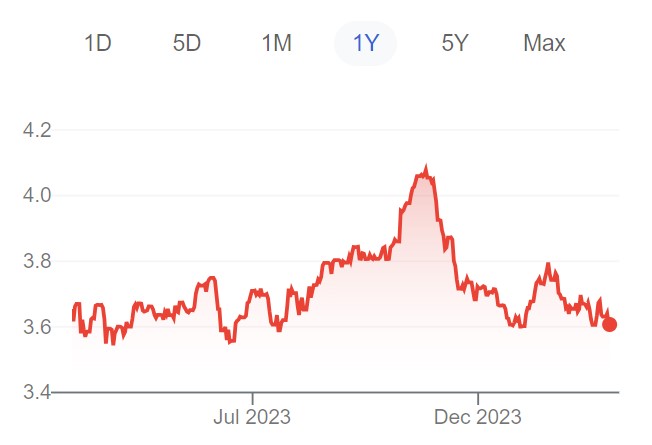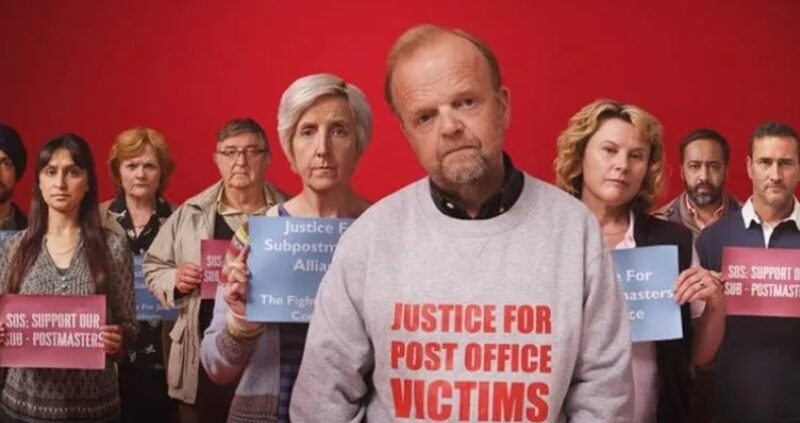By John Pickard
When the international agency, Moody’s, reduced Israel’s credit rating from A1 to A2 last week, it was because of their concern over how long the Gaza war would last, the danger of it spreading and, not least, its cost. Long after this war ends, there will be a huge economic price to pay within Israel, and it will be borne on the shoulders of ordinary Israelis, adding to the gathering political and economic storms.
In the final months of 2023, the Israeli economy shrank by almost a fifth, much more than economists had predicted. The steep decline in GDP was a result of the mobilisation of 300,000 military reservists, taking them out of productive work and and leading to a sharp contraction in consumer spending.
Then there was the cost of housing more than 135,000 Israelis who had been evacuated from the northern and southern parts of Israel, those closest respectively, to Lebanon and Gaza. There were also labour shortages in key parts of the economy, like construction, because of restriction placed on the movement of Palestinian workers, as many as 150,000, who normally ‘commuted’ from the occupied areas of Palestine to work in Israel.
No-one paid higher price than Palestinians of Gaza
No-one is paying more dearly for the war than the Palestinian people in Gaza, losing over 30,000 dead and tens of thousands more injured, overwhelmingly non-combatants and around a third of them children. A huge proportion of buildings and infrastructure, even places with no military value, have been completely destroyed and put beyond use.
In the West Bank, continued raids by the IDF into Palestinian towns and cities have also destroyed roads and infrastrucure and taken thousands into detention without trial. As a result of these raids and pogroms by armed Jewish settlers, nearly 400 West Bank Palestinians have been killed just since October 7.
But in Israel itself, there will also be an economic price to pay for the war, and it will not be paid by the handful of rich families that dominate the economy. It will not be borne by the far right religious zealots who dodge military service and taxes. It will be borne by Israeli workers, many of whom have been suckered over the years into supporting right-wing parties as the necessary price of ‘peace’ and ‘security’.
The Israeli Finance ministry’s accountant general, Yali Rothenberg, in an interview with the Financial Times, gave a detailed picture of the dire financial deficit faced by the government. The war has triggered a sharp rise in government spending, up by 88% in only three months, but this is set to increase further, particularly in defence spending.
Reduced consumer spending shows squeeze on living standards
The fall in living standards is evident in the decline of consumer spending, by 27%, but even if this recovers somewhat, the prognosis for Israeli workers into the foreseeable future is austerity without end.

To pay for the war, the Israeli Finance Ministry is planning to raise $60bn in money markets, a huge figure for a relatively small country, and one that will be burdened with higher interest payments after its reduced credit rating.
Israeli politicians, including Prime Minister Netanyahu are doing their best to ‘talk up’ the economy and Yali Rothenberg does the same,. “The economic fundamentals are there,” he told the FT. But he also spelled out what the cost would be to ordinary Israelis.
To offset rising costs in defence spending, the Financy Ministry plans to increase VAT from 17% to 18%, increase taxes, freeze government jobs and “defer” public sector wage increases. Workers will pay, in other words in declining spending power and poorer public services.
Nor is this increased sacrifice limited to the short term. The government is planning to raise defence spending this year by 55bn shekels ($15bn), which is an 85 per cent increase on the pre-war budget. That would raise defence spending to around 20 per cent of the total 2024 budget, from 13.5 per cent before the war. This increase, the Accountant General told the Financial Times, is likely to apply “for the coming years.”
Finance Ministry budgeting for “de-escalation” from the end of March
What was interesting about the Finance official’s interview is that he spoke about the war “de-escalating”, and not only that, but his ministry had even budgeted for it. Although 300,000 reservists had been called up in the week after October 7, he said, “the number still serving is about a fifth” of that figure. “That number was expected to drop to between 30,000-40,000 by the end of March”.
The problem with the Finance Ministry budgeting for a “de-escalation” – although that in itself is an important admission – is that it may not happen. There is an ongoing exchange of missile and artillery fire between the IDF and the Lebanese Hezbollah in the north and It is still not ruled out that this may yet become a full-blown war. If that happened, it would cost Israel more in lives and in finance than the war in Gaza, and it would blow apart all the current plans of the Finance Ministry.
Despite the Western powers and Saudi Arabia arguing for a separate Palestinian state on the West Bank and Gaza, Netanyahu’s ‘solution’ for Gaza is indefinite Israeli military control and an economic grip tighter than ever before. Even if it were possible for some compliant Palestinian ‘authority’ to be established in Gaza, it would be rejected by the overwhelming majority of the population and seen as a treacherous government.
This would be no solution at all, and it would make the situation far worse than it was prewar. Israel would be going back to where it was in 2005, with a brutal and expensive, military occupation, protecting a tame ‘authority’ and perhaps a handful of new Jewish settlements. It is not so much a solution as a further escalation of the problem, the problem, that is, of unfulfilled Palestinian rights.
The next general election in Israel, when it comes, will probably be the most toxic in the country’s history. There will be those on the right, like members of the current government, who still hang onto the idea that ‘security’ can only come through ‘strength’, which translates into the reinforcement of apartheid, endless wars and the ongoing oppression of Palestinians.
Next elections will be the most toxic in 75 years.
But there will also be many, perhaps a growing number, who recognise that they are being asked to make sacrifices – lower living standards, longer national service in the IDF, pariah status among workers and youth around the world – but for what? No ‘peace’ and no ‘security’. In January, none other than the former head of the domestic Secret Service, Shin Bet, gave an interview with the Guardian, in which he argued that there can be no peace without some settlement with Palestinians.
Although he understood his views would not be popular in the current mood in Israel, “we Israelis”, he said, “will have security only when they, Palestinians, will have hope. This is the equation.” He advocated negotiation with Marwan Barghouti, seen as the most popular Palestinian leader, and currently in an Israeli jail.
These two sides of Israeli politics will become more embittered, more deeply divided and more sharply polarised than at any time in the seventy-five years of Israel’s history, as the political crisis and the economic crisis merge into one. As we have argued many times, the war in Gaza is a game-changer, and nothing in the Middle East will be the same. The developments specifically in Israel are and will be unprecedented and need to be watched by all socialists and supporters of Palestinian rights around the world.
[Top picture shows a wall in Tel Aviv protesting the lack of negotations on Israeli hostages held by Hamas. From the website of B T’selem}



